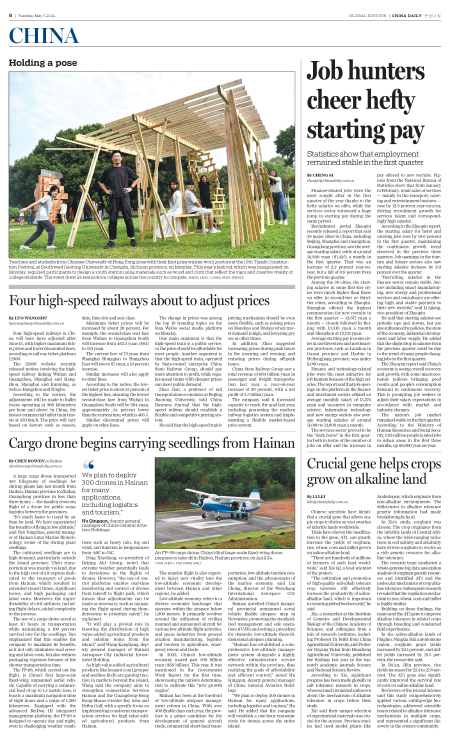Four high-speed railways in China will have fares adjusted after June 15, with higher maximum ticket prices and lower discounted fares, according to railway ticket platform 12306.
The 12306 website recently released notices involving the high-speed railway linking Wuhan and Guangzhou, Shanghai and Hangzhou, Shanghai and Kunming, as well as Hangzhou and Ningbo.
According to the notices, the adjustments will be made to bullet trains operating at 300 kilometers per hour and above. In China, the fastest commercial bullet train travels at 350 km/h. The price will vary based on factors such as season, date, time slot and seat class.
Maximum ticket prices will be increased by about 20 percent. For example, the second-class seat fare from Wuhan to Guangzhou South will increase from 463.5 yuan ($64) to 553 yuan.
The current fare of 73 yuan from Shanghai Hongqiao to Hangzhou East will rise to 87 yuan, a 19 percent increase.
Similar increases will also apply to other lines.
According to the notice, the lowest ticket price is about 55 percent of the highest fare, meaning the lowest second-class fare from Wuhan to Guangzhou South will be 304 yuan, approximately 34 percent lower than the current fare, which is 463.5.
Similar discounted prices will apply on other lines.
The change in prices was among the top 10 trending topics on the Sina Weibo social media platform on Monday.
One main argument is that the high-speed train is a public service, so the price should be affordable for most people. Another argument is that the high-speed train, operated by State-owned enterprise China State Railway Group, should pay more attention to profit, while regular-speed trains with cheaper prices can meet public demand.
Zhao Jian, a professor of rail transportation economics at Beijing Jiaotong University, told China Business Journal that the high-speed railway should establish a flexible and competitive pricing system.
He said that the high-speed train's pricing mechanism should be even more flexible, such as raising prices on Mondays and Fridays when travel demand is high, and lowering prices at other times.
In addition, Zhao suggested increasing prices during peak hours in the morning and evening, and reducing prices during off-peak hours.
China State Railway Group saw a total revenue of 964 billion yuan in passenger and freight transportation last year, a year-on-year increase of 39 percent, with a net profit of 3.3 billion yuan.
The company said it increased capacity to reach the goal last year, including promoting the modern railway logistics system and implementing a flexible market-based price system.
luowangshu@chinadaily.com.cn

